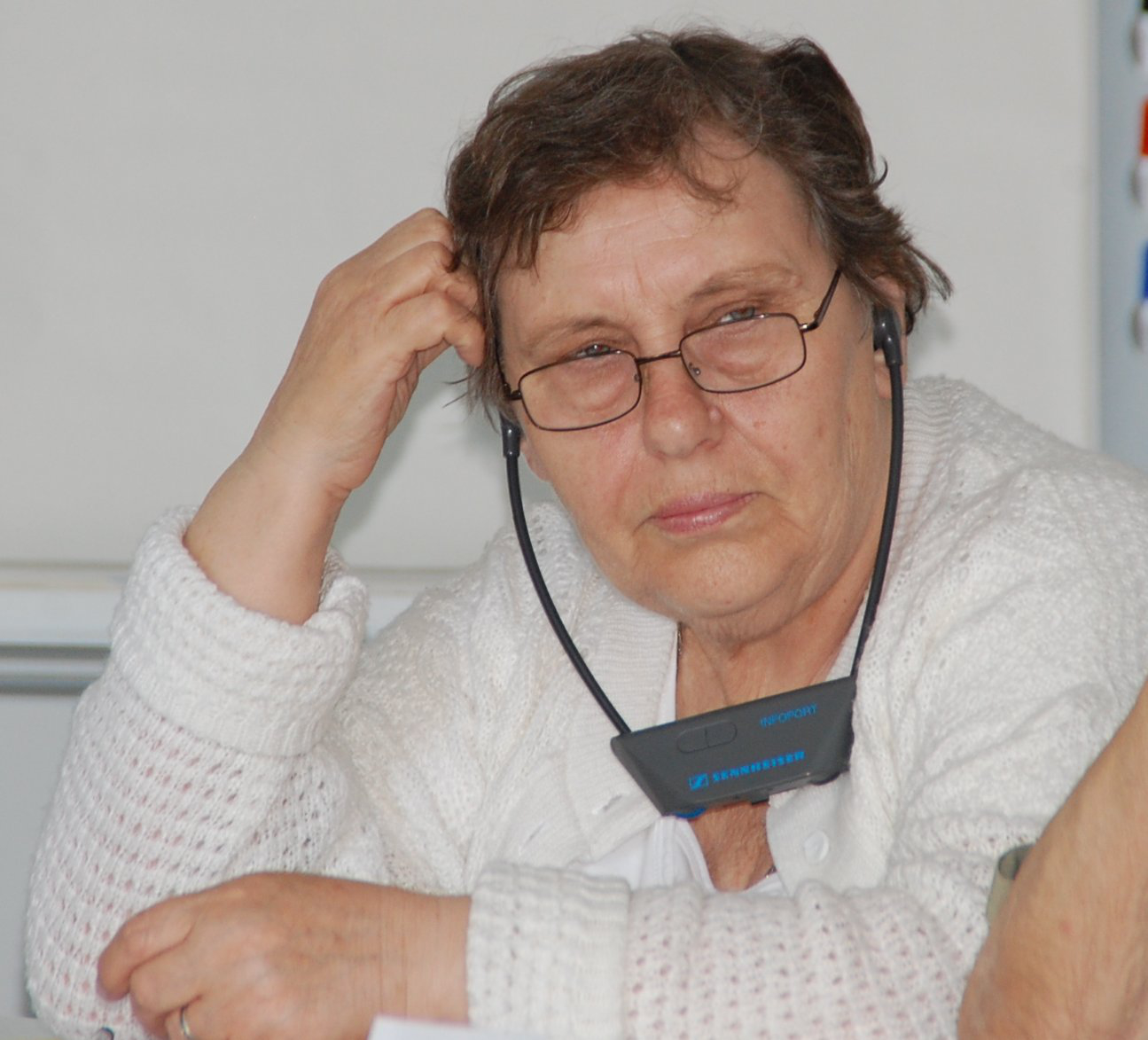Jewgenia Iwanowna Boiko, née Porwina
born 1944 in Ravensbrück
daughter of Pelageja Nikititschna Porwina
04.10.1906 in Hussarka - 12. April 1991
Ravensbrück: Oktober 1943 –April 1945

Jewgenia Boiko, Foto:J. Bochat
Yevgenia Boiko was born in the Ravensbrück concentration camp in 1944. She writes: “My mother and I miraculously survived thanks to the people who shared the last piece of bread with us. They were prisoners from other countries. Friendship, mutual help and solidarity helped us to survive under these conditions. " After returning home and finishing school, Yevgenia Boiko graduated from the Pedagogical Institute and worked at a school. She is a member of the "Organization of Fighters of the Anti-Fascist Resistance".
Pelageja Nikititschna Porvina October 4, 1906 in Hussarka (near Mariupol) - April 12, 1991
Ravensbrück: Autumn 1943 - May 1945
"I do not wish anyone to experience what my mother Porvina Pelageja Nikitichna had to experience together with hundreds of thousands of other prisoners from the fascist concentration camps."
Memories of a child prisoner in Ravensbrück:
I was born in Germany in the Ravensbrück concentration camp. My mother, Porvina Pelageja Nikitichna, who lived in the village of Gusarka in the Kujbishev district, Zaporizhia Oblast, before and after the war, worked as a zoo technician in the collective farm before the war. She was a member of the communist party. During the German offensive, they took the cattle further east. She was no longer able to escape. Some policeman denounced her. In the beginning of the summer of 1943 she was arrested and sent to the Berdyansk prison. There she was interrogated and tortured and sent to Germany in the autumn of 1943. Her first stop was the Buchenwald concentration camp, from where she came to the Ravensbrück concentration camp.
My mother is no longer alive, she died in 1991. According to her, it was communists from Belgium and Holland who helped her and me to survive in this hell. I don't remember my stay in the concentration camp because I was too young. I only remember when we returned home that I was asked: "And what did you eat there in Germany?" And I answered: "Beets and spinach."
In 2000, as a member of the Ukrainian delegation, I visited the Ravensbrück Memorial on the occasion of the 55th anniversary of the liberation of the camp.
- Written down by Evgenija Iwanovna Bojko, daughter of Pelageja Nikitichna Porvina *